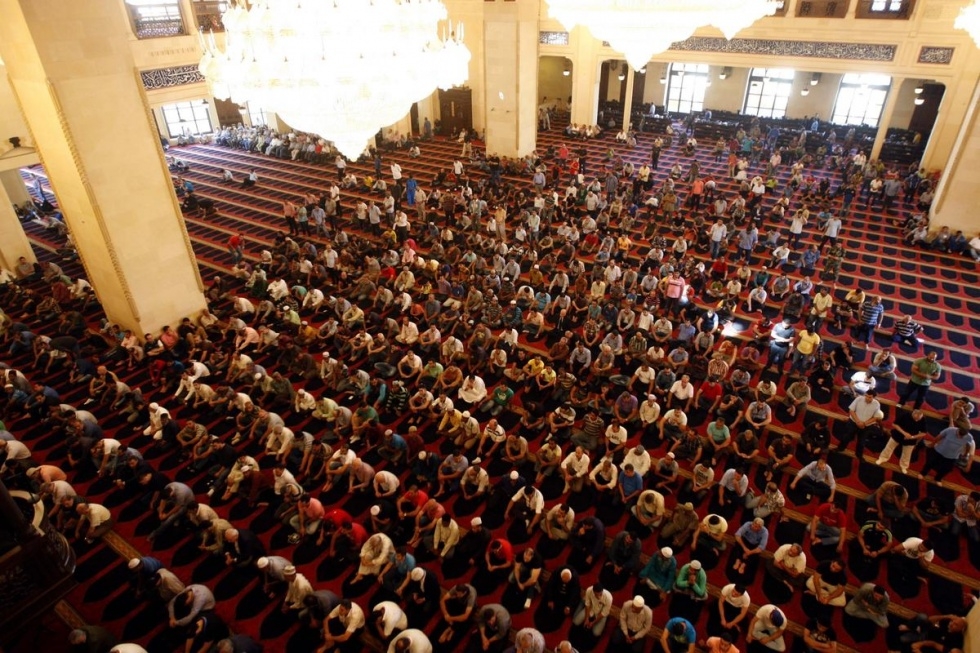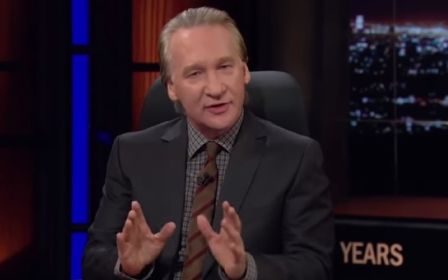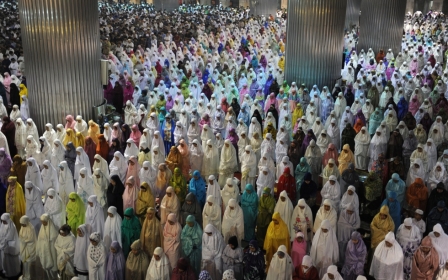The rise of extremism and Islamophobia: A clash of cultures or ignorance?

There is no denying that political mores are still fairly backward in many Muslim countries. If this were not the case, there wouldn't have been an Arab Spring in the first place. The clash of civilisations for which Osama Bin Laden was hoping in the 1990’s is alas, slowly being realised. He knew too well that with his ragtag army he could not militarily defeat the US. However, his strategic goal was not a direct military confrontation.
Rather, the main goal was to drive the US into an indefinitely protracted war against an elusive enemy spread out across several continents. Such a colossal undertaking, he was hoping, would deplete it of force, and thus, provoke its bankruptcy and ultimate collapse.
From an unknown group initially confined to Afghanistan and Pakistan's tribal regions, al-Qaeda has alas, metastasised into a multitude of franchises in the vast territory stretching from Mali to Pakistan.
Concomitant with this surge in violence and war in Muslim countries, a disturbing wave of Islamophobia is now sweeping the West. What was once deemed marginal is now commonplace. It is not only the multiple incidents of petty racism involving ordinary people that is worrying today, but the unchallenged bigotry of public opinion-makers in mainstream media that warrants cause for alarm.
The October 3 edition of HBO’s “Real Time with Bill Maher " involving a heated debate between Bill Maher and Sam Harris on one hand and movie actor Ben Affleck on the other, is a case in point. Under the disguise of secular atheism, Sam Harris and Bill Maher went on an unprecedented spree of bigotry calling Islam "the mother-load of bad ideas" or “the only religion that acts like the mafia.”
Everybody has the right to criticise Islam. For, not only is the critique of extremism a legitimate intellectual endeavour, it is also a moral obligation. However, to crudely single out Islam and subsequently disseminate blanket criticism of it, with little concern for nuance and without expertise on the subject, is frankly questionable.
They claim to be liberal atheists opposing all religions. Yet there is not a single instance where they have had the courage to condemn the fanatical behaviour of Jewish settlers in the Palestinian territories, for instance, or rebuke the declarations and actions of prominent right-wing politicians and religious figures, despite the fact that there are numerous occurrences where they should have stood up and condemned such fanaticism, all the more so that such bigotry is often cloaked with the most abject form of racism.
The recent declarations of Rabbi Shalom Lewis of Congregation Etz Chaim in the Atlanta suburb of Marietta, Georgia are one such example. Rabbi S. Lewis gave in his recent Rosh Hashanah a sermon in which he called for a “holy crusade” against Islam and Muslims. He said, in sum, that such endeavour is urgently needed to “exterminate utterly and absolutely” the Islamic faith. And so is the blog post penned by the Yochanan Gordon on August 1, 2014 in the Times of Israel titled "When genocide is permissible."
Mordechai Eliyahu, Israel’s former Sephardic chief rabbi, a well-known Israeli theocrat publicly stated, “that there was absolutely no moral prohibition against the indiscriminate killing of civilians.”. As reported by Electronic Intifada, Rabbi advocated Gaza’s carpet bombing on May, 2007.
Israeli lawmaker, Ayelet Shaked , from the Jewish Home party, publicly stated on her Facebook page the day before the kidnapping of the Palestinian teenager, Mohamed Khdeir, by fanatic settlers in Jerusalem that “the entire Palestinian people is the enemy,” and its destruction justified, “including its elderly and its women, its cities and its villages, its property and its infrastructure.” She even called for the collective slaughter of Palestinian mothers who give birth to "little snakes."
Moshe Feiglin of the Likud Party made the call, in an article on 1 August for the Israeli news website, Arutz Shev, for the invasion of Gaza and deportation of its entire population. He urged the Israeli army to do so with "maximum force with all the conventional means at its disposal.”
In spite of their vile nature, such statements were never highlighted, let alone condemned, by either Harris or Maher in their crusade against extremism. Not only would they not condemn such appalling things, but Sam Harris, by far the most intellectually sophisticated, confessed his long-standing position of principle with regard to Israeli's behaviour in a podcast titled “Why I don't condemn Israel."
Since the attacks of 9/11, Sam Harris has made a lucrative career for himself as a rationalist opponent of all religions. However, the only creed organically intertwined with terrorism is, according to Sam Harris, Islam: it cannot be purged from violence. Therefore, Islam ought to be fought head-on, no matter what it takes to do so. Such is, implicitly, Harris' personal remedy to today's complex global geo-political turmoil. To preserve civilisation, the West has to wage a war on Islam. This is an idea threaded throughout his writings and woven into his talks.
In his volume titled, “The End of Faith: Religion, Terror, and the Future of Reason,” published in 2004, Harris wrote, "We will continue to spill blood in what is, at bottom, a war of ideas.” As David Wash, the art critic of the World Socialist website aptly put it in an op-ed penned on 9 October: "An ostensibly liberal version of the clash of civilisations argument of right-wing figures such as political scientist Samuel P. Huntington, Harris’ view of the world has, in fact, “…sinister, even genocidal implications.”
Unlike Sam Harris, Bill Maher is not an intellectual. His self-professed political liberalism is a just veneer. Beneath his “iconoclasm” lurks a profit-driven reactionary person whose avant-gardism has never been anything other than superficial. He is, according to Forbes magazine, worth $23 mn and, despite his mockery of the establishment, he remains, nevertheless, a proponent of the reactionary political system.
To quote David Wash again in the same article"...Maher’s oppositional pretensions are falling away, as his condemnation of whistle-blower Edward Snowden, enthusiastic support for the slaughter in Gaza carried out by the Israeli military and anti-Muslim tirades have made clear."
Echoing Harris' blanket statement in the same TV program: "We are misled into thinking the fundamentalists are the fringes,” Bill Maher notes, “It is not a few bad apples.” These value judgments, when deconstructed, are basically an invitation to permanent war
This opening of the "floodgates of Islamophobia" on prime-time TV, to rephrase Myriam Francois Cerrah, by mainstream American anchors and intellectuals, indicates that massive generalisations about Muslims are not, anymore, the monopoly of right-wing TV hosts like O’Reilly or Hannity of Fox News. The view that Islam is a global "destructive force" now appears to be the dominant theme across the political spectrum.
It is not, however, the amorphous statements of token Muslims and sycophants that will alter the negative perception of Islam by the general public in the West. Ahmed Benchemsi, a typical self-hating “Muslim”, pathetically wrote on October 3 in Salon a reply to the Maher and Harris’ rant claiming that practising Muslims aren’t representing of the majority and thus reinforcing the very prejudice and misconception he is purportedly trying to repel.
But the basic idea underpinning the political philosophy of Free Arabs, his online publication, argues that the majority of Muslims are actually only “nominal Muslims”, or “cultural Muslims” who do not identify with their faith. This assumption implies that practising Muslims cannot be moderate or liberal. In other words, these “nominal Muslims” have appropriated the very notion of secular liberalism.
Echoing this view, Fareed Zakaria, the well-known CNN anchor, pontificates on 9 October in an op-ed in the Washington Post that we are obliged to admit there is a “problem with Islam.” The difficulty with this kind of assumption is that it confers an objective attribute to an abstract phenomenon articulated, explained or interpreted by men. As the academic scholar Myriam Francois Cerrah vigorously contends in a piece published by Salon on 12 October refuting Harris-Maher’s over generalisations about Islam: ”for a start, religions don’t do or think anything – people articulate ideas or act in the name of religion.”
Thus, Islam is the way it is today because of the action of Muslims. It’s the interpretation of human beings - that is, people with agency that make the religion what it is.
Han Suyin, a Chinese novelist and non-Muslim, relates in La Cité des Sortilèges, that the medieval Chinese had such a high idea about Islam that they coined a phrase for it: “the religion of purity.” This view was very likely a reflection of their interaction with Muslim merchants who did not practise usury, had a rigorous notion of hygiene, and shied away from promiscuity.
In light of these developments and the ongoing blood-letting in the Middle East, it is increasingly difficult for ordinary folk of all faiths and ideological backgrounds to remain hopeful that human decency will triumph over despair.
Whereas Christians and other religious minorities are facing unprecedented persecution in the war-torn Middle East, Muslims are renewing with the old patterns of racism in the West. It is a worrying and unfortunate situation.
Thus, it would be a disaster for all of us to let this “clash of ignorance,” to borrow a term from the great Palestinian American scholar, Edward Said, become the defining feature of our relations. There will be no winner in a clash of this sort. And the biggest loser of all will be humanity.
Mohamed El Mokhtar Sidi Haiba is a social and political analyst, whose research interest is focused on African and Middle Eastern Affairs.
The views expressed in this article belong to the author and do not necessarily reflect the editorial policy of Middle East Eye.
Photo: Muslims pray at historical Muhammad al-Amin Mosque in Beirut, Lebanon on 10 October, 2014 (AA)
New MEE newsletter: Jerusalem Dispatch
Sign up to get the latest insights and analysis on Israel-Palestine, alongside Turkey Unpacked and other MEE newsletters
Middle East Eye delivers independent and unrivalled coverage and analysis of the Middle East, North Africa and beyond. To learn more about republishing this content and the associated fees, please fill out this form. More about MEE can be found here.





